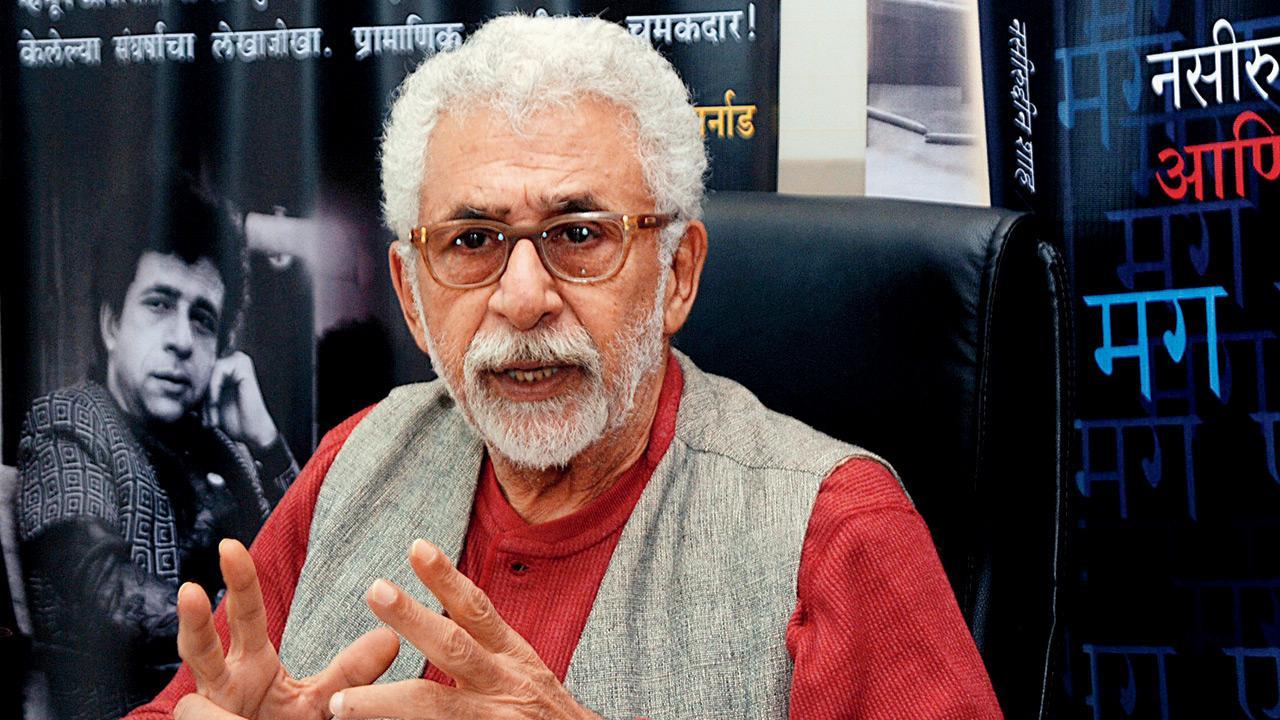Naseeruddin Shah the rebel
Updated On: 13 September, 2021 07:45 AM IST | Mumbai | Ajaz Ashraf
Why the veteran actor was right in castigating a section of Muslims who celebrated the Taliban’s return to power

In his recent video message, Shah also said that the Islam practised in India is different from that followed elsewhere, a reference to the former’s syncretic nature
Actor Naseeruddin Shah belongs to what can be called Muslims Like Us (MLU), a numerically insignificant subset of People Like Us (PLU). Both groups comprise members who are middle class, privileged, and deeply troubled over the illiberal turn India has taken under the Modi rule. They are viciously trolled and dubbed as anti-national.
In a rare reversal, it is PLU and MLU who are now frothing at Shah for releasing a video in which he castigated those Muslims who celebrated the Taliban’s return to power. Shah also said that the Islam practised in India is different from that followed elsewhere, a reference to the former’s syncretic nature. He said Muslims had to choose between reform and modernity and the values of barbarism of centuries ago.



